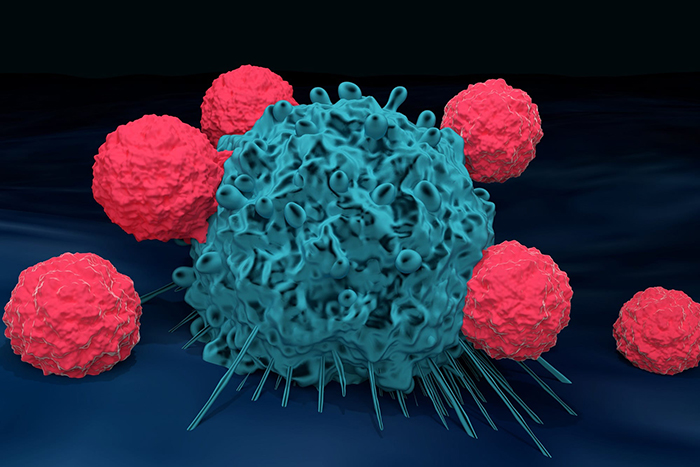What Should You Consider When Choosing Sarcoma Care?
When you or a loved one is diagnosed with sarcoma, it is important to find doctors who know this rare type of cancer well. At Winship Cancer Institute of Emory University, a team of sarcoma specialists offers expert care and the latest treatments to help patients from Georgia and across the Southeast. The Winship care team includes medical oncologists, radiation oncologists, surgical oncologists, orthopedic surgeons, pathologists, radiologists and other specialists—all with expertise in sarcoma. They work together to create personalized treatment plans for each patient.
“As compared to carcinoma or organ tumors, the likelihood of you having a sarcoma is rare,” says Winship orthopedic surgeon and sarcoma expert Jonathan Morris, MD. “So, having doctors with the right skill set and expert knowledge is also rare.” Winship is fortunate to have such experts.
The Winship team approach ensures that every part of your care is well coordinated and effective. For instance, a patient with bone sarcoma might need chemotherapy before surgery and would rarely, if ever, need radiation. At Winship, these treatments are planned and delivered by a team of specialists who meet regularly to discuss cases and decide on a treatment plan, including the option of clinical trials, to ensure the best possible outcomes.
Advanced Treatments
One important benefit of choosing Winship for your care is access to advanced treatments like proton therapy. This type of radiation treatment targets tumors precisely, causing less damage to nearby healthy tissue. This precision is especially helpful for sarcoma patients because it reduces side effects and protects important organs. This advanced type of treatment is available at Emory Proton Therapy Center, the only proton center in Georgia.
Other forms of advanced treatment include minimally invasive surgical techniques, targeted therapies and immunotherapies. Our goal is to provide the most effective treatments with the least impact on your quality of life.
Genetics, which refers to the traits passed down from one generation to another, and genomics, a person’s genetic makeup, are driving new treatment approaches. “As we've learned the genetics of cancer and been able to study the genomics, what we're able to do is create targeted therapies to help focus and specifically attack the sarcoma cells,” says Dr. Morris. “And we're also able to apply these novel therapies that are developed for other cancers. At Winship, we’re committed to discovering and developing new therapies.”
Winship Cancer Institute is the only National Cancer Institute (NCI)-designated Comprehensive Cancer Center in Georgia. NCI designation is awarded to cancer centers leading the nation in progress against cancer through their research and training. This designation provides patients access to new therapies and clinical trials not widely available elsewhere, and research shows the chances of surviving cancer are up to 25% higher when starting treatment at an NCI-designated center.
"At Winship, we believe in turning scientific advances into hope for our patients," says Dr. Cardona. "Our goal is to help you live longer and feel better through innovative treatments and compassionate care. We know that a cancer diagnosis can be overwhelming. Our team provides support every step of the way, from diagnosis through treatment and beyond."
Cancer Care Reimagined
Winship’s sarcoma care is provided at Winship Cancer Institute at Emory Midtown, a full-service cancer care center designed to ease the burden of cancer. Nearly all the services you need — from precision diagnostics and doctors’ appointments to advanced treatments, clinical trials and support services — are conveniently brought to you in one place by collaborative teams specialized in your type of cancer. This unique care model was shaped from the imagination of patients and care teams and focuses on quality, outcomes and your needs and comfort to help you live a full life.
Comprehensive Support
Winship offers a range of services to help you and your family cope with the emotional, psychological and practical challenges of a cancer diagnosis. Support services at Winship include counseling, nutritional advice, pain management, support groups and much more. These services are designed to help you manage the side effects of treatment, maintain your quality of life and find support during a difficult time.




